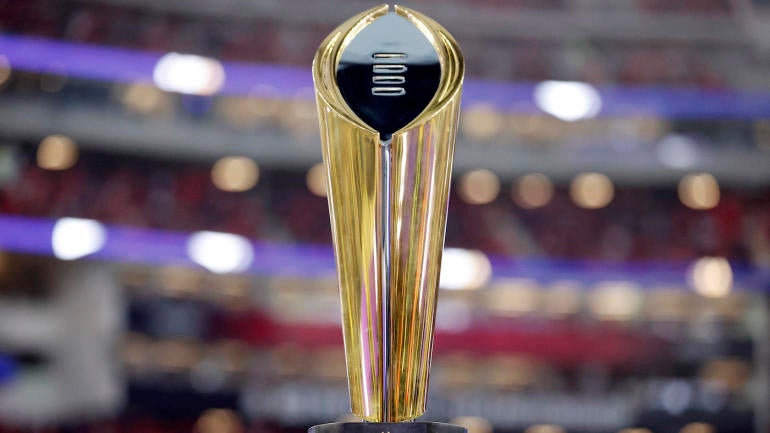
The SEC and Big Ten committing to the College Football Playoff for the long haul may be in jeopardy if key issues are not rectified. Speaking to Yahoo Sports, both SEC commissioner Greg Sankey and Big Ten commissioner Tony Petitti expressed doubts concerning their respective leagues' commitment to the CFP as its governance struggles to iron out details surrounding its future format.
Yep (we're committed for now), but we've got a lot to get right," Sankey said. "The commitment is we want to see this get right. ... We have the reality of meeting to deal with CFP governance with the 2026 season and beyond. That's a highly important issue."
No issue looms larger than access to the CFP as college football's power conference landscape prepares for drastic changes this summer. All of this as the CFP prepares for an expansion from four teams to 12 teams starting with the 2024 season. The previously agreed-to model of six auto-bids for the six highest-ranked conference champions and six at-large berths was expected to be amended by the CFP Board of Managers to a 5+7 model in January to account for the Pac-12's mass exodus of 10 members last August. That amendment was never finalized, however.
According to Yahoo Sports, Washington State president Kirk Schulz, whose school is one of only two continuing Pac-12 members along with Oregon State, delayed the vote, which needed unanimity for it to be adopted in time for the 2024 season. Schulz also reportedly proposed that the two schools would be guaranteed voting rights and CFP revenue distribution beyond 2025, which was met with pushback.
The CFP's current contract expires after the 2025 college football season, so conferences would theoretically be free to explore other postseason options if an extension is not reached. According to Yahoo Sports, Petitti pitched expanding the CFP to either 14 or 16 teams with multiple automatic qualifiers to major conferences. The CFP Management Committee, which includes Sankey and Petitti along with fellow FBS commissioners and Notre Dame athletic director Jack Swarbrick, is slated to meet Monday and Tuesday in the Dallas-Fort Worth area.
"I'm new to [CFP] meetings," Petitti said. "How these things develop, there have been some surprises. The focus on what this is going to look like beyond 2026 is highly important and deserves a lot of time and discussion."
Just last week, the SEC and Big Ten, both of whom are forecasted to only further pull away from the rest of the FBS conferences from a sheer revenue standpoint, formed an advisory group to "address the significant challenges facing college athletics." It was widely perceived as a coded threat to the NCAA that the two wealthiest conferences could go in their own direction if the governing body overseeing college athletics fails to tackle key issues facing the sport -- name, image and likeness compensation among them.
As of the 2024 season, the SEC and Big Ten will boast a combined a 34 schools (16 for the SEC, 18 for the Big Ten) and overwhelmingly account for college football's premier brands. The SEC adds Big 12 founding members Oklahoma and Texas to its lineup, while the Big Ten will officially span coast-to-coast with the additions of Pac-12 staples USC, UCLA, Oregon and Washington.
![[object Object] Logo](https://sportshub.cbsistatic.com/i/2020/04/22/e9ceb731-8b3f-4c60-98fe-090ab66a2997/screen-shot-2020-04-22-at-11-04-56-am.png)

















